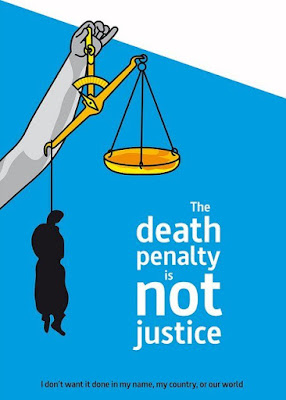INTRODUCTION
"An eye for an eye makes the whole world blind" is stating that on the off chance that we continue rebuffing those we regard merciless, at that point, we're no better than the trouble makers ourselves. It's the whole "you can't tackle savagery with brutality" is a well-known expression by Mahatma Gandhi.
India consistently claims to follow the footsteps of Mahatma Gandhi, But on the off chance that we go as indicated by our law framework, at that point, "The death penalty" is a logical inconsistency to Mahatma Gandhi's hypothesis.
There is always a question mark on the Indian criminal preliminary framework, and judges are individuals. They can commit an error as well.
INDIAN HISTORY OF CAPITAL PUNISHMENT
The Constituent Assembly has debated the sentence for very long, bringing up issues about the 'judge-driven nature of capital punishment, and arbitrariness in imposition, and also the drastic impact on people living in poverty, and the possibility of mistake is excessive.
It was, however, decided that the desirability of the Death penalty ought to be left to Parliament. In 1955, Parliament acted to make the main critical proceed onwards capital punishment.
Till 1955, where the Death sentence was one of the alternatives provided in law, it was the standard that if a judge chooses to give the lesser discipline needs to express the 'unique reasons.' This prerequisite of giving 'uncommon explanations' behind's not giving capital punishment was revoked in 1955. In 1973, the Code of Criminal Procedure 1898 was revamped and re-enacted.
UNITED NATIONS ON CAPITAL PUNISHMENT (DEATH SENTENCE)
By the early 1960s, while the majority of countries still exercised the death penalty, the draftees of the International Covenant on Civil and Political Rights (ICCPR) had already initiated efforts to eradicate it in international law.
While Article 6 of the ICCPR permits the application of the death penalty under restricted cases, it also states that 'nothing under this article shall be invoked to delay or prohibit any State Party to the present Covenant from abolishing capital punishment.' Safeguards are guaranteeing the security of the rights of those facing the death penalty.
ARTICLE 21 AND ITS INTERPRETATIONS
Article 21 of the Indian Constitution expresses that no individual will be denied of their life or individual freedom with the exception of as accommodated in the law.
The protected legitimacy of capital punishment has been addressed every now and then in various cases beginning with JAGMOHAN SINGH VS STATE OF U.P in which the Supreme Court excused the dispute that capital punishment is a breach of the "right to life" allowed under Article 19 of the Indian Constitution.
Recommendations and Conclusions.
Not setting off to any statics but a case from Indore where an individual got arrested on getting accused of assault and murder of a child following 23 days of arrest and trial court gives capital punishment to accused.
For a healthy individual, this news can be valuable and fulfilling, but for a person having an understanding of the law, it's only killing of criminal equity framework.
Does the defendant was given proper opportunities of hearing, which is the fundamental rule of law?
So without having an exact preliminary structure, how might we permit the death penalty. An individual who perpetrates wrongdoing consistently conveys an explanation for it As studies state, human brain science is founded on reasoning parameters.
Sigmund Fraud appropriately said that Human conduct relies upon childhood encounters, which can be most exceedingly terrible on occasion.
This Article is written by Lavanya Rai. She is currently pursuing her B.B.A.LL.B at I.C.F.A.I Law School, Hyderabad and she is in the first year.







0 Comments